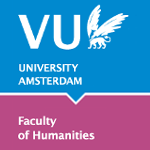
|
Digital Humanities Workbench |
Home page > E-resources > Introduction IntroductionThe term e-resource is used for any kind of digital source. A vast number of e-resources are available on the internet that can be relevant for research in the humanities. For example, more and more primary sources are being made available digitally. This includes historical documents, literary texts, newspapers, films, collections of photographs and interviews. Nowadays, these sources are usually produced digitally, but older sources are also being digitized for specific research purposes or, more generally, in the context of digitizing of our cultural heritage.
Of course you can use a search engine to search the Internet for a particular digital source, but it is always important to determine whether the websites and/or e-resources you find are appropriate for scientific use. See the sections on Assessment criteria and Web sites and Web documents on the faculty's Academic skills workbench In this context, it is often wise to look for files in specialized archives created and managed by academic institutions. These may be general archives of large collections of digitized cultural heritage or more specialized archives, such as the Victorian Web.
In addition, a growing number of resource inventories is available, usually in the form of searchable databases. This also includes catalogues and biographical databases with information about (scientific) literature. For an overview, please see the section on Searching for scientific literature Finally, more and more datasets produced by (scientific) research are being made available online, usually involving edited versions, interpretations and analyses of original source material. It is not the purpose of this workbench to provide a comprehensive overview of all e-resources that may be relevant to your field, as that would be impossible. Rather, the workbench is limited to a brief overview of some specific e-resources that may be useful as a tool for various types of research in your field, in addition to a summary of the most important Dutch archives. |
Other topics in this section: Dictionaries Linguistics Biographies Literary reviews The Bible |

 . If the origin of a digitized source is well-documented (telling you where the document originated and whether the technical and content-based metadata are of good quality), it can generally be used for further research. Always ask yourself what the significance of the document is as a part of the whole website and how the context and organization of the website in question affect its significance. How did the document end up on the site? Are there any documents missing and why would that be the case?
. If the origin of a digitized source is well-documented (telling you where the document originated and whether the technical and content-based metadata are of good quality), it can generally be used for further research. Always ask yourself what the significance of the document is as a part of the whole website and how the context and organization of the website in question affect its significance. How did the document end up on the site? Are there any documents missing and why would that be the case?